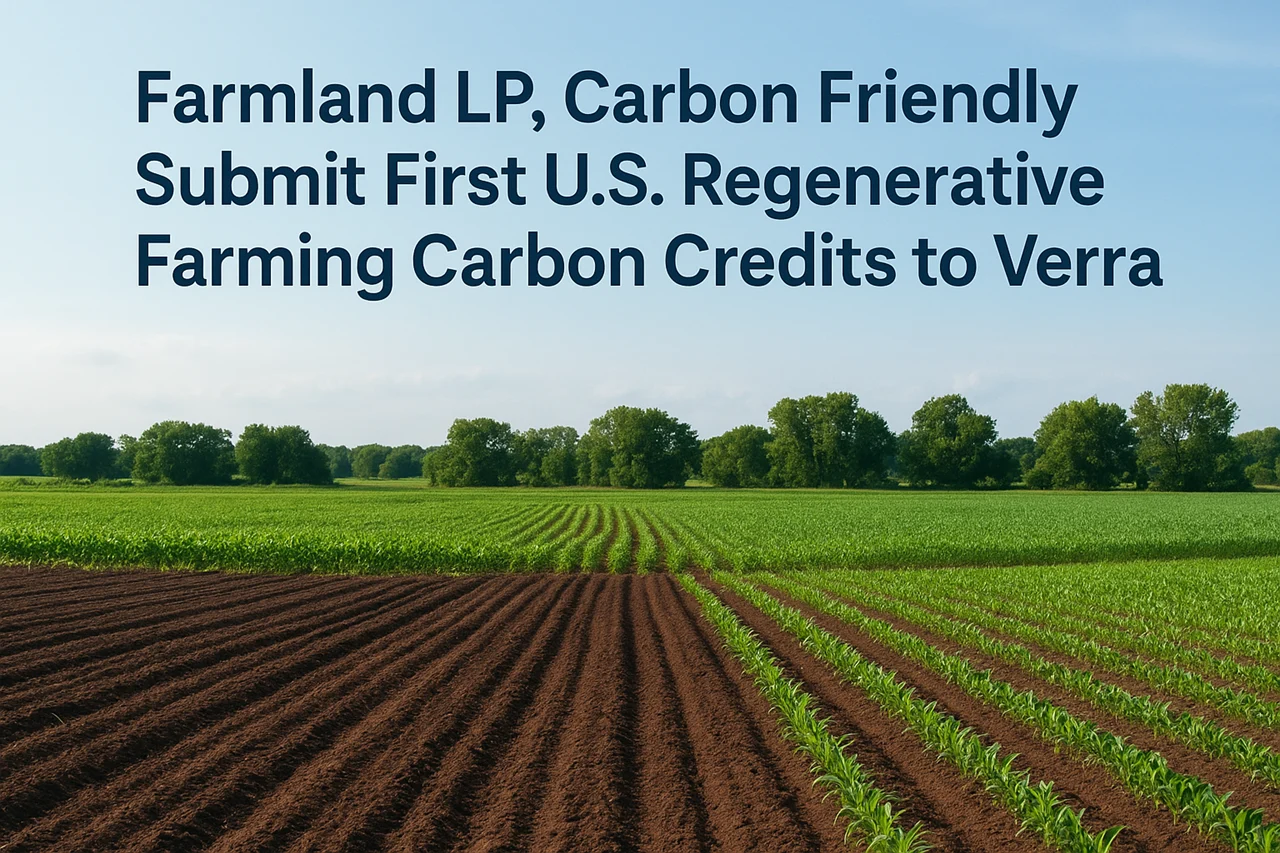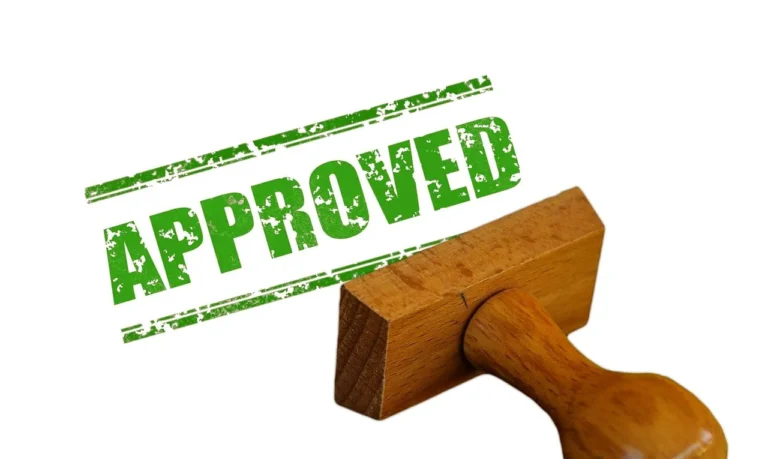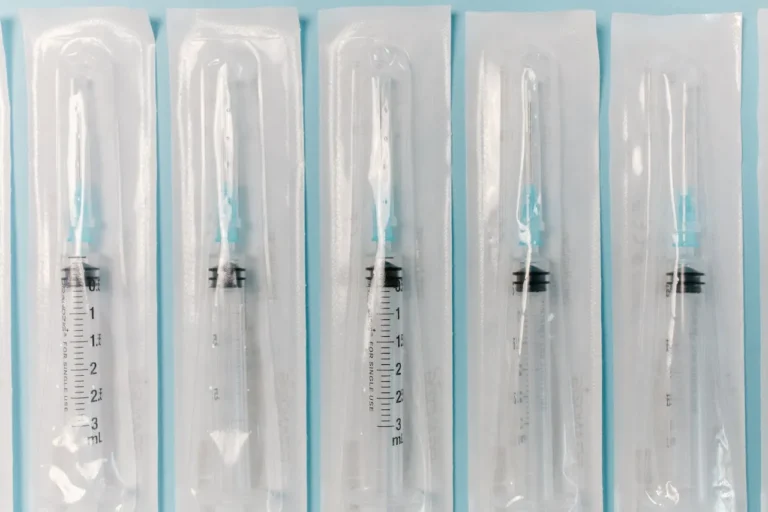Farmland LP, the largest U.S. manager exclusively focused on organic and regenerative farmland, together with Carbon Friendly, a leading developer of regenerative carbon projects, have achieved a major milestone in the voluntary carbon market. The two organizations have submitted the first regenerative farming carbon credits produced in the United States to Verra for issuance under the Verified Carbon Standard (VCS) VM0042 methodology.
This submission follows a meticulous evaluation process. After site visits in late 2024, a Verra-accredited third-party auditor conducted an exhaustive nine-month review, assessing the project against Verra’s rigorous Verified Carbon Standard methodology. The completed audit report was submitted to Verra in October 2025 for final approval and the issuance of carbon credits.
The credits represent one of the most robust and transparent pathways in the voluntary carbon market. They combine precise measurement, long-term permanence, and verified environmental co-benefits, positioning them as a high-integrity solution for corporations seeking credible carbon offsets.
Accurate Measurement, Not Estimates
Unlike many voluntary carbon projects that rely on models, these regenerative farming credits are based on empirical, field-level data. Soil samples are collected annually at fixed GPS locations, providing verifiable evidence of carbon stock changes over time. This approach ensures that every ton of carbon credited is backed by hard scientific data, reinforcing the credibility of the credits in the market.
Permanence and Independent Verification
The project’s framework emphasizes durability. Legally binding agreements between Farmland LP, Carbon Friendly, and participating farmers, coupled with Verra-approved safeguards, guarantee the long-term permanence of the carbon stored in soils. Independent third-party verification adds another layer of assurance, ensuring the credits meet the highest standards of environmental integrity.
Regeneration Beyond Carbon
These regenerative credits extend benefits beyond carbon sequestration. They originate from certified organic and regenerative farmland, where practices such as cover cropping, reduced tillage, and diverse crop rotations are improving soil health, water quality, and biodiversity. The initiative demonstrates that regenerative agriculture can simultaneously deliver climate, ecological, and social benefits, reinforcing the multi-dimensional value of nature-based solutions.
Anticipated Credit Issuance and Market Impact
The initial credits, expected to be issued by Verra soon, come from regenerative practices implemented in 2023 and 2024. Looking ahead, Farmland LP, Carbon Friendly, and their farming partners anticipate issuing between 2 million and 5 million regenerative soil carbon credits over the next decade from already validated projects. Additional credits are expected from new regenerative farming initiatives as the program expands, signaling a substantial pipeline of high-quality carbon offsets for corporate buyers.
Leadership Perspectives
Craig Wichner, Managing Partner of Farmland LP, emphasized the strategic importance of the initiative:
“Farmland LP’s strategy has always been to align ecological value with financial return. With this first submission to Verra, we are turning regenerative agriculture into a verifiable climate solution that will generate millions of high-quality nature-based removals over the coming decade. This milestone demonstrates the potential for regenerative farming to deliver both ecological and economic value at scale.”
François Visser, CEO of Carbon Friendly, highlighted the rigor of the process and market implications:
“Verra’s approval process demands the highest levels of rigor, and this submission proves that regenerative agriculture can meet that bar. Partnering with Farmland LP allows us to bring scientific credibility and market transparency to soil carbon credits at scale, providing corporate buyers with the confidence they need to invest in durable, ‘Ground Truth’ climate solutions.”
Portfolio Growth and Strategic Expansion
This milestone comes amid Farmland LP’s ongoing growth under its Fund III, which remains open for investment through December 2025. Recent acquisitions and partnerships, including a joint venture with Stemilt Growers covering nearly 1,000 acres of apples and cherries in Washington’s Columbia Basin, have expanded the firm’s portfolio and diversified its asset base. Total holdings now exceed 4,700 acres, including earlier acquisitions such as the 1,184-acre Riverwood Farm in Oregon’s Willamette Valley and 2,625 acres across three farms in California’s San Joaquin Delta.
The company’s expanding footprint underscores the scalability of regenerative agriculture as a climate solution, demonstrating that ecological stewardship and investment returns can go hand in hand. By integrating carbon credit generation with regenerative farming practices, Farmland LP and Carbon Friendly are pioneering a replicable model for sustainable agriculture in the United States.
Looking Forward
The successful submission of these carbon credits marks a significant milestone for both organizations and the broader voluntary carbon market. As demand for verified, high-quality offsets continues to grow among corporations seeking to meet climate commitments, projects like these demonstrate the potential for regenerative agriculture to play a central role in nature-based climate solutions.
By combining scientific rigor, financial strategy, and ecological stewardship, Farmland LP and Carbon Friendly are setting a new standard for what regenerative farming can achieve—both in the fields and on the balance sheets.



